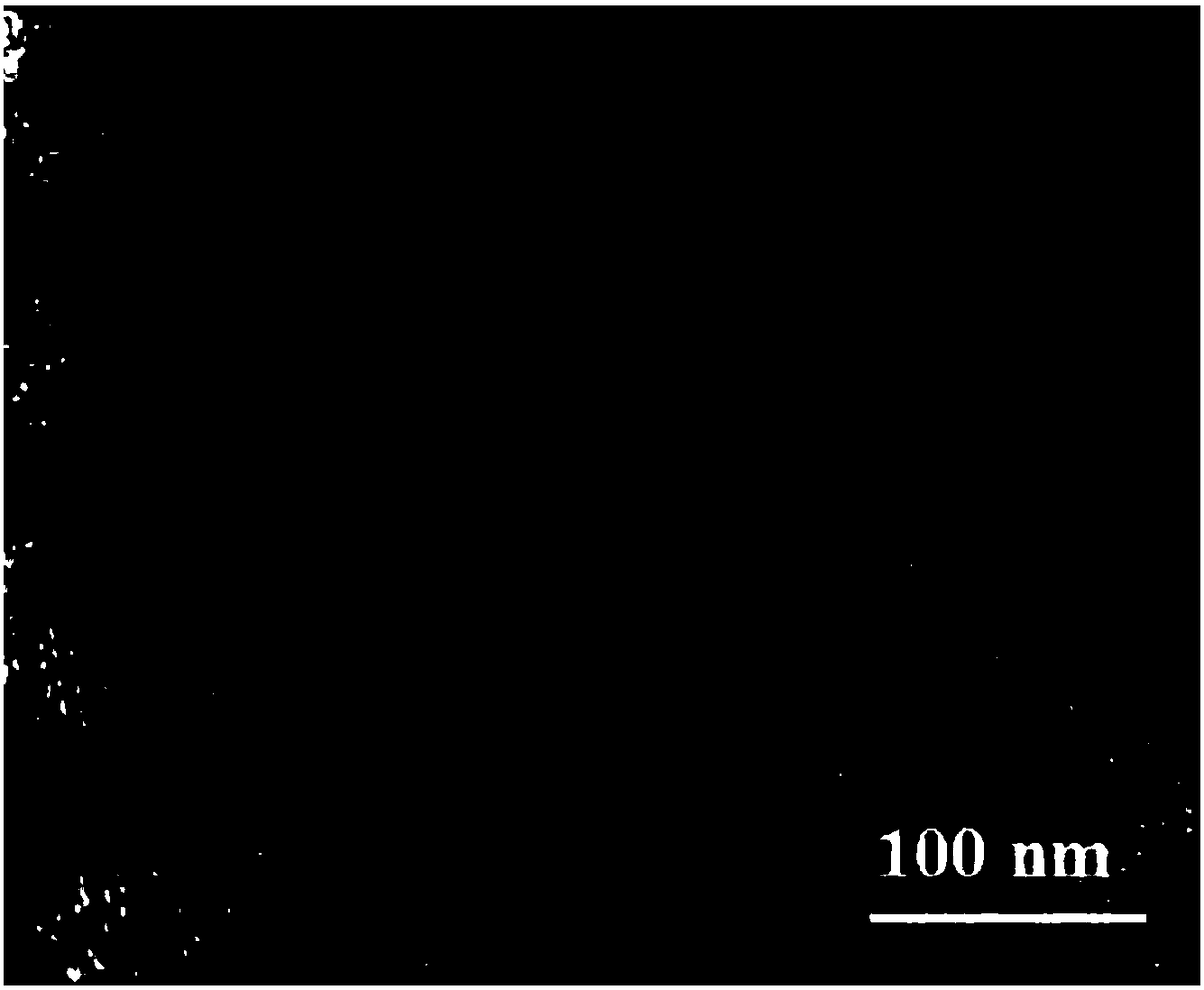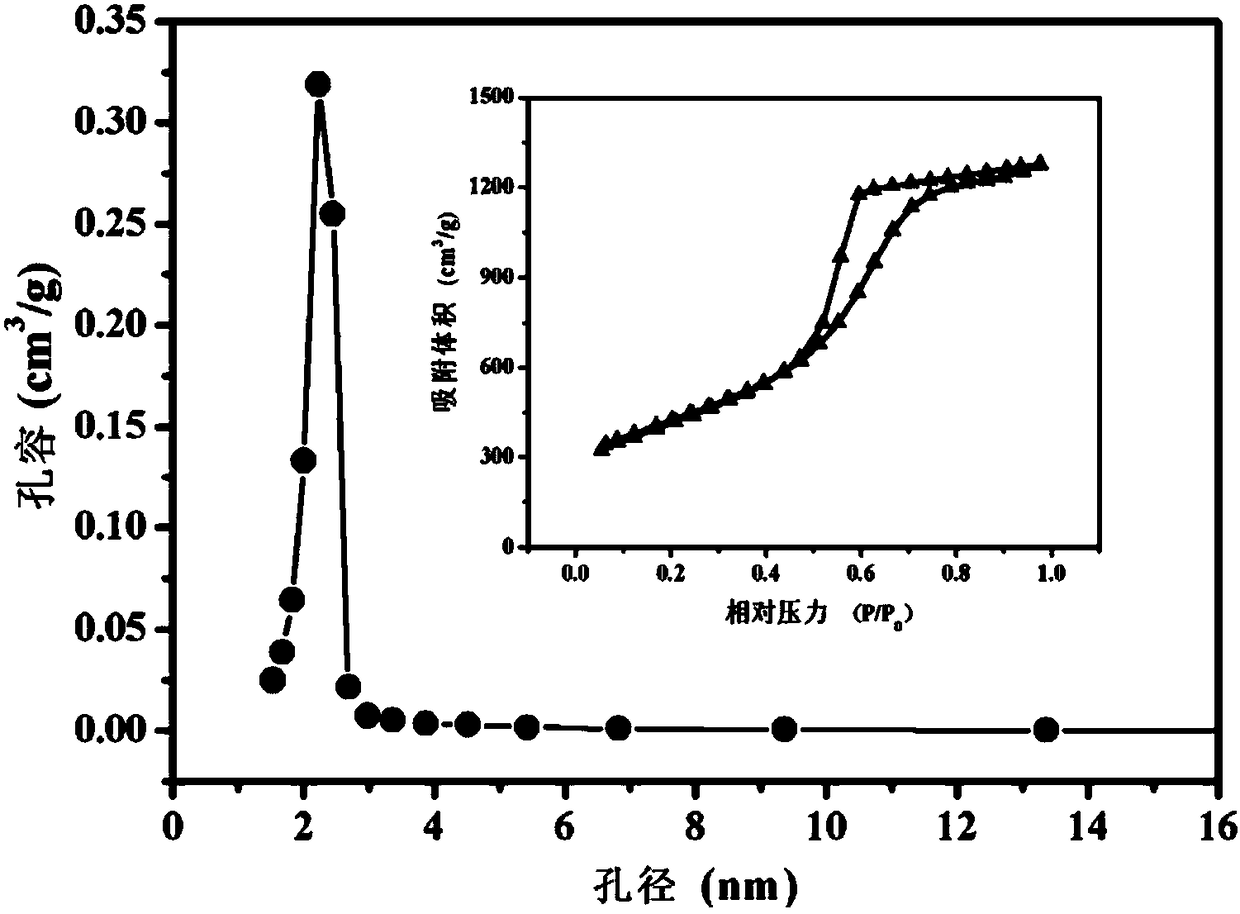Electrochemical sensor for detecting lead ion and/or cadmium ion, and preparation method and application thereof
An electrochemical and lead ion technology, applied in the direction of material electrochemical variables, scientific instruments, instruments, etc., can solve the problems of cumbersome preparation process, inability to detect two or more substances at the same time, and low detection sensitivity, so as to reduce the preparation steps , Improving the performance of electrochemical analysis and improving the effect of chemical properties
- Summary
- Abstract
- Description
- Claims
- Application Information
AI Technical Summary
Problems solved by technology
Method used
Image
Examples
Embodiment 1
[0047] An electrochemical sensor for detecting lead ions and / or cadmium ions, comprising a glassy carbon electrode used as a working electrode in a three-electrode system, wherein the surface of the reaction end of the glassy carbon electrode is decorated with an ordered medium loaded with hollow spherical bismuth oxide Porous carbon, ordered mesoporous carbon loaded with hollow spherical bismuth oxide is based on ordered mesoporous carbon, and the surface of ordered mesoporous carbon is loaded with hollow spherical bismuth oxide.
[0048] In this embodiment, bismuth oxide is supported on the surface of the ordered mesoporous carbon by a hydrothermal method, and a hollow spherical bismuth oxide is formed on the surface of the ordered mesoporous carbon by high-temperature calcination.
[0049] In this embodiment, the mass ratio of the ordered mesoporous carbon to the hollow spherical bismuth oxide in the ordered mesoporous carbon loaded with hollow spherical bismuth oxide is 1:1...
Embodiment 2
[0075] An application of an electrochemical sensor in simultaneously detecting lead ions and cadmium ions, comprising the following steps:
[0076] (1) With the glassy carbon electrode modified with ordered mesoporous carbon loaded with hollow spherical bismuth oxide on the surface of the reaction end in Example 1 as the working electrode, the saturated calomel electrode as the reference electrode, and the platinum electrode as the counter electrode, three electrodes are established system, connect the three-electrode system to the electrochemical workstation, and add different concentrations of lead-cadmium ion solutions (lead-cadmium ion concentrations are 0.50nM, 1.0nM, 2.0nM, 4.0nM, 6.0nM, 8.0nM, 10.0nM, 20.0nM, 40.0nM, 60.0nM, 80.0nM, 100.0nM, 120.0nM, 140.0nM, 160.0nM, 180.0nM, 200.0nM), test differential pulse for different concentrations of lead and cadmium ion solutions Voltammetric spectrum (DPV).
[0077] (2) Construct a linear regression equation according to the ...
Embodiment 3
[0087] Investigate the detection accuracy of electrochemical sensors
[0088] In order to further verify the detection effect of the electrochemical sensor in practical application in Example 1, the electrochemical sensor is now used for target detection in actual samples by standard addition method or direct dilution method (assay method with reference to Example 2), Perform recovery experiments.
[0089] (1) Using the electrochemical sensor in Example 1 to detect Pb in leaded slag and polluted soil respectively 2+ and Cd 2+ The specific steps are as follows: the two samples of lead-containing slag and contaminated soil are processed by the automatic graphite heating digestion method, the obtained digestion solution is allowed to stand, and the supernatant is taken to adjust the pH to 4.5 with acetate buffer. Sample (contains Pb 2+ and Cd 2+ ) with reference to Table 1 for the concentration of the target substance, and finally the electrochemical sensor of Example 1 is de...
PUM
| Property | Measurement | Unit |
|---|---|---|
| pore size | aaaaa | aaaaa |
| concentration | aaaaa | aaaaa |
| particle size | aaaaa | aaaaa |
Abstract
Description
Claims
Application Information
 Login to View More
Login to View More - R&D
- Intellectual Property
- Life Sciences
- Materials
- Tech Scout
- Unparalleled Data Quality
- Higher Quality Content
- 60% Fewer Hallucinations
Browse by: Latest US Patents, China's latest patents, Technical Efficacy Thesaurus, Application Domain, Technology Topic, Popular Technical Reports.
© 2025 PatSnap. All rights reserved.Legal|Privacy policy|Modern Slavery Act Transparency Statement|Sitemap|About US| Contact US: help@patsnap.com



